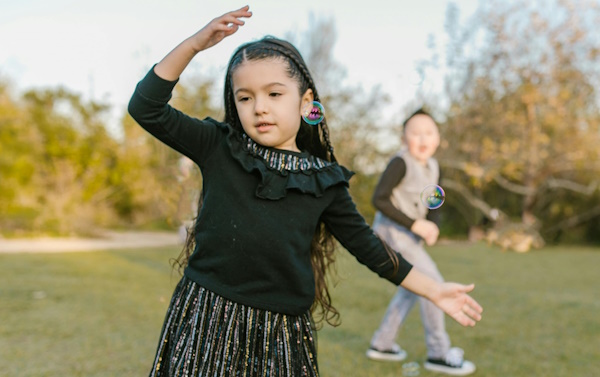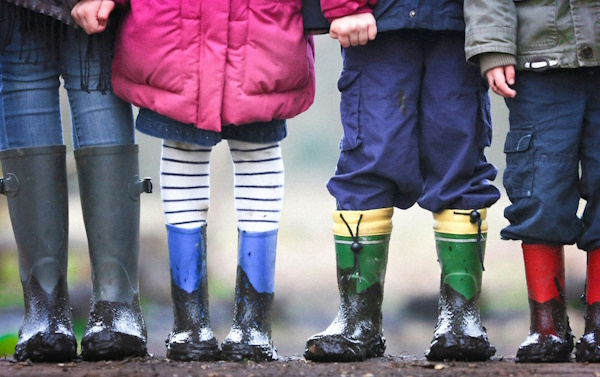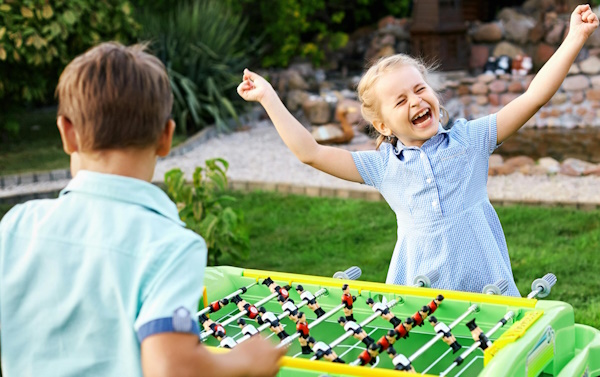Boost Your Child's Success: How to Foster a Positive Mindset
Cultivating a positive mindset in kids isn't just about encouraging smiles and laughter. It's about laying the foundation for resilience, confidence, and success in every aspect of their lives. From tackling school challenges to building strong friendships, a positive outlook can be the key to unlocking their full potential.
You've probably noticed how a child's attitude can influence their day-to-day experiences. That's no coincidence. A positive mindset helps kids navigate life's ups and downs with grace and determination. Ready to learn how you can foster this invaluable trait in your children? Let's dive into the world of positive mindset kids and discover the transformative power of optimism.
The Importance of a Positive Mindset in Kids
Cultivating a positive mindset in kids isn't just about making them feel good. It's about setting them up for success, both in the present and in their futures. When you teach your children to approach life with positivity and resilience, you're giving them tools that will help them navigate through challenges with grace and strength.
A positive mindset promotes problem-solving and creativity. Children who see the glass as half full are more likely to approach problems with a can-do attitude. This perspective encourages them to think outside the box and come up with innovative solutions. It's not just about overcoming obstacles; it's about fostering a creative spirit that'll serve them well in all areas of life.
Moreover, children with a positive attitude tend to have better relationships. They're more empathetic, cooperative, and willing to listen. These skills are crucial for building strong friendships and working well with others. It's not just about being liked; it's about developing the social skills necessary for teamwork and collaboration.
Research highlights the link between a positive mindset and academic success. Kids who approach their studies with optimism and determination are more likely to persevere through challenging material and achieve higher grades. It's not merely about intelligence; it's about the attitude they bring to their learning experiences.
- Optimism leads to higher engagement.
- Determination strengthens resilience.
- Positivity boosts confidence.
All these traits combined make for a powerful formula for success in virtually every aspect of life. By instilling a positive mindset in your children, you're not just helping them to be happier; you're setting them on a path to realizing their full potential. Remember, positivity is contagious. Your attitude can significantly impact your child's perspective, so it's crucial to lead by example.
Building Resilience through a Positive Outlook
Helping your child develop a resilient mindset is one of the best gifts you can give. Resilience, or the ability to bounce back from challenges, is closely tied to a positive outlook. Kids with resilience are better equipped to handle life’s ups and downs, and by fostering this trait, you’re setting the stage for their future success.
Start by modeling positive behavior yourself. Children learn a lot through observation. When they see you tackling problems with optimism and determination, they're more likely to mimic that approach. It's also crucial to encourage your child to view challenges not as insurmountable obstacles but as opportunities to learn and grow. This perspective shift can make all the difference in building resilience.
Another key aspect is practicing gratitude. Instill in your children the habit of recognizing and appreciating the good in their life, no matter how small. Research shows that gratitude is linked to higher levels of optimism and happiness. You can practice this together by sharing three good things that happened each day or maintaining a family gratitude journal.
Encourage problem-solving skills. When your child encounters a problem, resist the urge to immediately solve it for them. Instead, guide them through the process of identifying possible solutions. This promotes independence and confidence, crucial components of a resilient mindset.
Lastly, ensure that your child knows that it's okay to fail. Help them understand that failure is not a reflection of their worth but a step in the learning process. Teach them to ask, "What can I learn from this?" rather than spiraling into negativity.
By focusing on these areas, you’re not just helping your child build resilience. You're laying the foundation for a happier, more successful life where they feel empowered to tackle whatever comes their way.
Boosting Confidence with a Positive Mindset
Confidence is crucial for kids as it impacts how they face challenges, socialize, and make decisions. It's essential to understand that confidence is built on a positive mindset, a foundation that will support your child's growth into a resilient, capable individual. When you prioritize imparting a positive mindset to your children, you're setting them up for success, both in the present and future.
Creating a positive environment where your kids feel supported and valued makes a significant difference. Regular positive affirmations can reinforce their self-worth, helping them believe in their abilities. Introduce phrases like "You're capable of achieving great things" or "Your effort is more important than perfection" into daily conversations. This repetition instills a belief in their potential and the understanding that effort and attitude are key to overcoming obstacles.
Encourage your kids to set achievable goals and celebrate the milestones, no matter how small. This practice not only boosts their confidence but also teaches them the value of perseverance and hard work. Goals give them something to strive for and the satisfaction of achievement enhances their self-esteem.
Another effective strategy is to model positive behaviors yourself. Children are keen observers and often mimic the attitudes and behaviors of adults around them. Show them how to approach challenges with optimism and resilience. Share your own challenges and the positive strategies you used to overcome them. This transparency not only strengthens your bond but also shows them that everyone faces challenges and that a positive mindset is key in dealing with them.
By focusing on these strategies, you're not only boosting your child's confidence but also equipping them with the tools they need to approach life with optimism and courage. Remember, a confident child is more likely to embrace challenges, persist through setbacks, and ultimately, lead a fulfilling and successful life.
Nurturing Positive Friendships for Kids
Creating a supportive circle of friends is crucial for your child’s emotional and social development. When kids are surrounded by positive friendships, they’re not just happier; they’re also more resilient in the face of challenges. Here's how you can guide your child towards nurturing positive friendships.
Encourage Open Communication
You should prompt your child to talk about their day and share their experiences with friends. Open communication helps them reflect on their friendships and understand what a positive relationship looks like. It’s also an opportunity for you to teach them about empathy, respect, and kindness.
Promote Social Skills
Social skills such as sharing, listening, and cooperation are foundational for building lasting friendships. Encourage your child to practice these skills at home and in social settings. Role-playing is a great tool for teaching these concepts. By practicing in a safe environment, your child will be more confident in their ability to interact positively with others.
Choose Activities That Foster Friendships
Look for extracurricular activities or groups that align with your child’s interests. Whether it’s sports, art classes, or a science club, these settings can provide a platform for your child to meet like-minded peers. Shared interests are often the seed of strong friendships.
Be a Positive Role Model
Your own friendships and how you manage them are powerful examples for your child. Show them how you maintain positive relationships with your friends through kindness, availability, and support. Your actions speak volumes and set a benchmark for what healthy friendships should look like.
By focusing on these strategies, you’re not just helping your child make friends; you’re equipping them with the skills to choose and nurture positive, fulfilling relationships that can support their well-being throughout life.
Strategies for Cultivating a Positive Mindset in Kids
Cultivating a positive mindset in children isn't just about telling them to look on the bright side. It's about embedding a set of practices and attitudes into their daily lives that foster positivity. You play a crucial role in this process. Here’s how you can actively contribute to fostering a positive mindset in your kids.
First, emphasize the power of positive self-talk. Teach your kids the importance of the words they use when talking about themselves or their experiences. Encourage phrases like "I can try" instead of "I can't do it". This small shift in language can significantly impact their self-confidence and resilience.
Next, focus on gratitude. Encourage your children to acknowledge and appreciate the good in their life, however small it may seem. You could make it a daily routine where everyone shares something they’re grateful for at the dinner table. Gratitude is closely linked to increased happiness and a positive outlook on life.
Set them up for small successes. Achieving goals, no matter how minor, boosts a child's self-esteem and belief in their abilities. Help them set achievable targets, whether it’s finishing a simple puzzle or helping with household chores. Celebrating these small victories reinforces a can-do attitude.
Introduce problem-solving skills. Equip your kids with strategies to approach challenges positively. When they face a problem, guide them through a step-by-step solution-finding process. Ask questions like, “What do you think could help in this situation?” This approach encourages a proactive and optimistic problem-solving mindset.
Fostering a positive mindset in children prepares them for life's ups and downs. By incorporating these strategies into your parenting, you're not just helping your kids to be more resilient and optimistic; you're also setting the foundation for their lifelong success and happiness.
Conclusion
Fostering a positive mindset in your kids is an invaluable gift that extends beyond mere happiness. It's about equipping them with the tools they need to navigate life's ups and downs with resilience and optimism. By encouraging positive self-talk, gratitude, goal setting, and problem-solving skills, you're not just preparing them for academic success; you're setting them up for a fulfilling life. Remember, the strategies you implement today can shape your child's tomorrow. So, take the step to nurture a positive mindset in your children, and watch as they grow into confident, creative, and successful individuals. It's a journey worth embarking on for their happiness and success in life.







